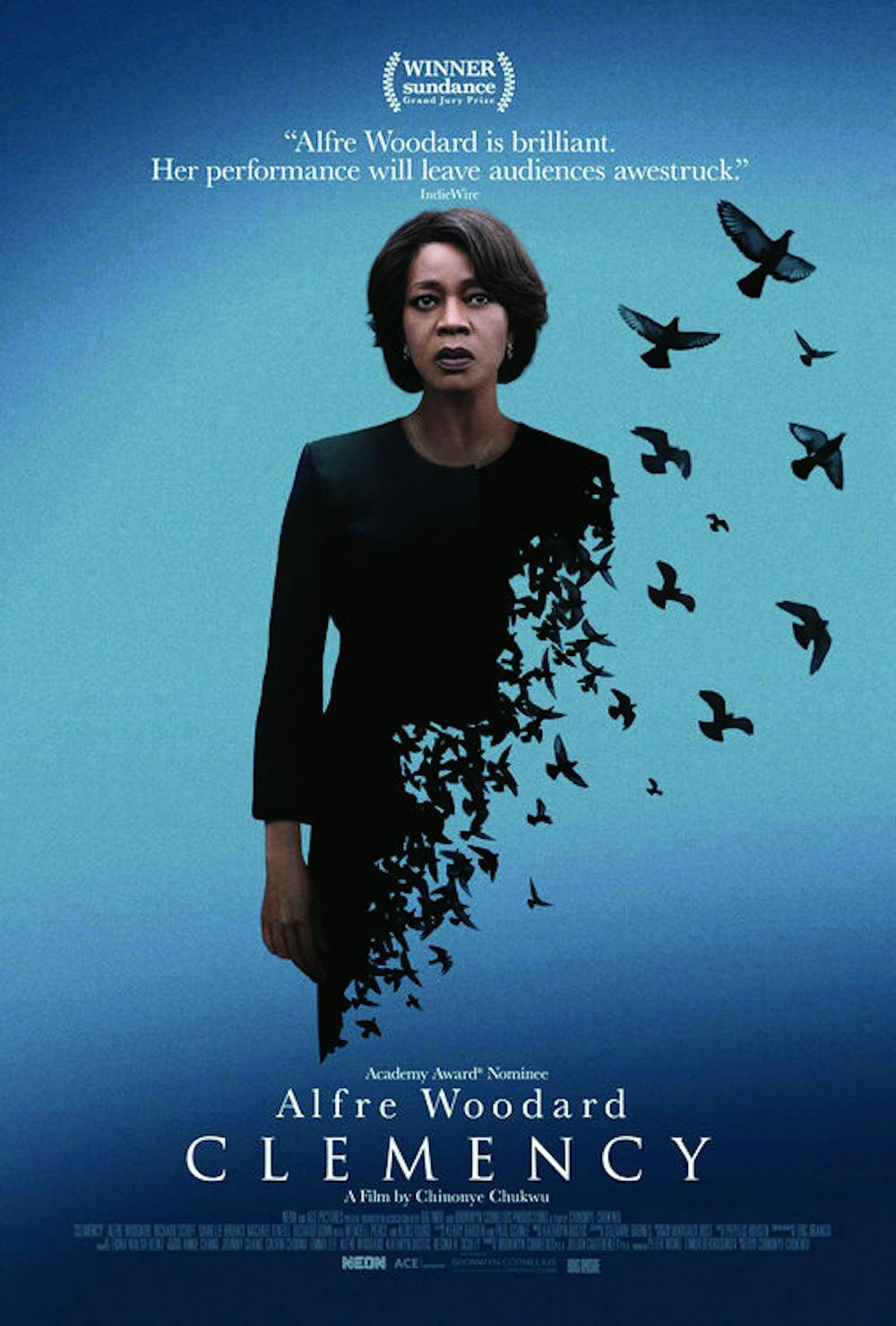The movie “Clemency” opens without mercy. An execution scene lays bare the somber, cold world of a prison.
Directed by Chinonye Chukwu, “Clemency,” the Hirschfield Film screened on Saturday, Oct. 26, follows Bernadine Williams (Alfre Woodard), a prison warden caught between worlds as two executions invade her personal life, revealing the unstable foundations on which she has built her stoic façade.
As the film moves inside, viewers see a contemplative side of Bernadine as she watches the empty straitjacket in thought but makes nothing more of it when she later observes the man strapped in. Standing closely by the seat, she gazes on as he is violently subdued. The man convulses, thrashing in pain as she shows little emotion, cloaked in shades of blue under stark lighting. Here, within the detachment between the warden and the executed, we see the true countenance she tries to bear.
What makes “Clemency” particularly insightful is Chukwu’s framing of narrative duality. This duality is encompassed by both Bernadine and Anthony Woods (Aldis Hodge), a central character on death row for an armed robbery gone wrong. From the get-go, we’re supposed to side with Anthony. Lawyer Lumetta (Richard Schiff) is sympathetic but believes he’s fighting for a lost cause, while Anthony is still hopeful, believing he may have a fighting chance with Lumetta by his side. But Bernadine remains immovable, almost apathetic, even when she persists against Lumetta’s pleas, signifying that her stance is concrete on not granting clemency to Anthony.
Things turn sour when Bernadine goes home to her husband, Jonathan (Wendell Pierce). She watches the news, looking at Anthony’s case in the comfort and softness of her own home. Curled up on the couch, Woodard embodies a different side to Bernadine: a troubled insomniac, a hyperventilating wife bedridden with nightmares of work. Recurrent dreams mirroring her underlying empathy for Anthony touch the hearts of the audience, and solidify the case for clemency despite of Bernadine’s loyalty to stoicism. The film hits its stride here when Bernadine battles with trouble from all sides: from her work, in the bar and on her anniversary. Despite her internalized conflict, Jonathan says he’s had enough of this “shell of a wife!”
But what about Anthony Woods? All this time, we see him meandering the confined walls of the prison, hands cuffed as he is boxed inside. Aldis Hodge crafts a beautiful performance, eyes wild and contemplative as he gazes at the drawings of birds on his cell wall, clustered in papers of yellow and soft white. Vulnerable and afraid, Woods descends into desperation, doing anything to release his anguish within his suffocated, lonesome state. We grapple with the ultimate question of whether clemency will be granted throughout the duration of the film, as varying sides to the debate are revealed, and protesters, family and overall visages of hope crowd the scene.
In engaging with intimate moments of central characters dealing with their own thoughts, Chukwu also collaborates with cinematographer Eric Branco particularly well. Warm yellows, harsh blues and stark whites are interspersed to create visions of conflict behind the minds of viewers and characters alike. This stylistic choice evokes multiple sides of characters’ sympathies and creates a languid stream of contemplation. Looking at the film from a technical standpoint, “Clemency” is well-constructed and feels real — frankly, all too real. Chukwu seizes every chance to highlight the emotional rollercoasters characters ride. It could take as little as the noise of an electrocardiograph to the verbose interactions of family members to draw out your frustrations.
Although the film progresses slowly, “Clemency” pulls us in with its reflection. It might not be a film you can view casually, but there’s value in asking ourselves whether it’s possible to seal off internal conflicts of ethics and morality. Ultimately, Chukwu brings dimension to the coldness of execution and the executioners. With this narrative, we push to reflect on freedoms, dualities of others’ lives and the caging narratives with which we imprison ourselves.
Reel Critic: 'Clemency'

Comments



